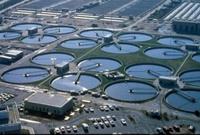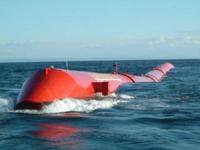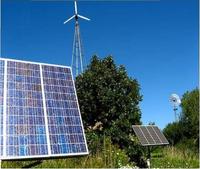-
Rapidly evolving cybersecurity field too diverse for overly broad professionalization
The U.S. cybersecurity work force is too broad and diverse to be treated as a single occupation or profession, and decisions about whether and how to professionalize the field will vary according to role and context, says a new report. Defined as the social process by which an occupation evolves into a profession, such as law or medicine, professionalization might involve prolonged training and formal education, knowledge and performance testing, or other activities that establish quality standards for the workforce.
-
-
NIST announces five grants to pilot Trusted Identity technologies
The National Institute of Standards and Technology (NIST) has announced more than $7 million in grants to five organizations to fund pilot projects as part of the government’s National Strategy for Trusted Identities in Cyberspace (NSTIC) initiative. The NSTIC initiative is a collaborative effort among the private sector, advocacy groups and public-sector agencies to support technologies that enable individuals and organizations to use secure, efficient, convenient and interoperable identity credentials to access online services in a way that promotes confidence, privacy, choice and innovation.
-
-
Demonstrating bioenergy technology

Researchers plan to demonstrate an innovative bioenergy technology that converts wastewater treatment plant byproducts into hydrogen gas to produce electricity. The demonstration project will start in mid-October, and in about a year the wastewater treatment plant will be processing one ton per day of wet biosolids and will be producing up to thirty kilowatts of electricity. The electricity, in turn, will be used to power select functions at the plant.
-
-
Aon calls on U.S. to extend expiring Terrorism Risk Insurance Act
Aon plc called on the U.S. government to extend the Terrorism Risk Insurance Act (TRIA), saying that TRIA remains the best solution for handling the terrorism insurance exposure in the United States. Aon says that if the program is allowed to expire, more than 85 percent of insurers will no longer continue to insure terrorism risk. Ultimately, in the unfortunate event of a large-scale attack, the U.S. government would face the full burden of the associated costs of said terrorism.
-
-
Flood insurance is not available to Canadian homeowners – should it be?
Canada is the only G8 country in which insurance against overland flooding is not available to homeowners — but does it have to remain that way? A study released Monday explores issues related to flooding and property insurance, aiming to advance informed discussion of the potential better to protect Canadian homeowners. It reveals that while insurance executives are concerned about the lack of flood insurance and agree on many of the associated issues, opinions remain mixed concerning its viability in Canada.
-
-
Business demand for temporary visas, green cards to rise in 2014
In its newly released 2013 Annual Business Immigration Survey, the Global Immigration Benchmarking Council (GIBC) reports that business demand for temporary visas and green cards continues to rise. Thirty-four percent of companies anticipate hiring more H-1B visa holders in the year ahead, while 25 percent of companies anticipate hiring additional H-2A or H-2B workers.
-
-
Extracting maximum energy from currents

In the long sprint to find new sources of clean, low-cost power, slow and steady may win the race — the slow-moving water of currents and tides, that is. Just as wind turbines tap into the energy of flowing air to generate electricity, hydrokinetic devices produce power from moving masses of water.
-
-
World's first grid-scale isothermal compressed air energy storage system
A New Hampshire company has completed construction and begun startup of the world’s first megawatt-scale isothermal compressed air energy storage (ICAES) system. The system stores and returns megawatts of electricity to provide long-term grid stability and support integration of renewable energy sources like wind and solar. Unlike chemical battery systems, ICAES performance does not degrade over its lifetime or need frequent replacement. No hazardous materials are used.
-
-
Using spooks’ software to select wine
Delectable is a mobile application that allows users to explore wines by using technology currently employed to locate terrorists and prevent bank frauds. The application is considered to have the world’s largest database of wine, providing information on more than two million wines and offering users an option to purchase selected wines.
-
-
USDA plans to expand private meat inspection scheme despite criticism
The USDA’s plan to expand a pilot program which shifts responsibility from government inspectors at meat processing plants to private or company-employed inspectors has faced skepticism and criticism. The pilot plan was supposed to be evaluated, but the USDA Inspector General reported that the department has yet to study the effectiveness of the plan in improving food safety and efficiency in the plants. Critics say the replacement of government inspectors has led to an increase in the number of instances of contaminated meat in the U.S. plants which have adopted the plan – and also in the Canadian and Australian meat plant where the scheme has been implemented.
-
-
October is National Cybersecurity Awareness Month
This October marks the tenth National Cyber Security Awareness Month (NCSAM), an effort to educate millions of people each year about the importance of online safety and security. During the month, leaders from the public and private sectors will come together to advance its universal theme that protecting the Internet is “Our Shared Responsibility.”
-
-
Canada addresses environmental concerns over Keystone XL
Canadian prime minister Stephen Harper sent a letter to President Barack Obama last month offering to participate in joint efforts to reduce greenhouse-gas emissions in order to win approval of the Keystone XL Pipeline. Harper’s offer may allow Obama to approve the project without having to confront environmental groups.
-
-
Calculating the energy required to store wind and solar power on the grid

Renewable energy holds the promise of reducing carbon dioxide emissions. There are times, however, when solar and wind farms generate more electricity than is needed by consumers. Storing that surplus energy in batteries for later use seems like an obvious solution, but a new study from Stanford University suggests that might not always be the case.
-
-
New systems improve voice recognition
Graduate students and researchers at the University of Texas Dallas have developed novel systems that can identify speaking voices despite conditions that can make it harder to make out a voice, such as whispering, speaking through various emotions, or talking with a stuffy nose.
-
-
Senior U.S., Canadian government officials to gather at US/Canada Border Conference
For two days on 12-13 September, Detroit’s renovated Cobo Center will be host to a gathering of U.S. and Canadian border security officials and industry professionals meeting to discuss a myriad of important issues relating to border protection and facilitation of legitimate trade and travel between the United States and Canada.
-
More headlines
The long view
Are We Ready for a ‘DeepSeek for Bioweapons’?
Anthropic’s Claude 4 is a warning sign: AI that can help build bioweapons is coming, and could be widely available soon. Steven Adler writes that we need to be prepared for the consequences: “like a freely downloadable ‘DeepSeek for bioweapons,’ available across the internet, loadable to the computer of any amateur scientist who wishes to cause mass harm. With Anthropic’s Claude Opus 4 having finally triggered this level of safety risk, the clock is now ticking.”
A Brief History of Federal Funding for Basic Science
Biomedical science in the United States is at a crossroads. For 75 years, the federal government has partnered with academic institutions, fueling discoveries that have transformed medicine and saved lives. Recent moves by the Trump administration — including funding cuts and proposed changes to how research support is allocated — now threaten this legacy.
Bookshelf: Preserving the U.S. Technological Republic
The United States since its founding has always been a technological republic, one whose place in the world has been made possible and advanced by its capacity for innovation. But our present advantage cannot be taken for granted.
Critical Minerals Don’t Belong in Landfills – Microwave Tech Offers a Cleaner Way to Reclaim Them from E-waste
E-waste recycling focuses on retrieving steel, copper, aluminum, but ignores tiny specks of critical materials. Once technology becomes available to recover these tiny but valuable specks of critical materials quickly and affordably, the U.S. can transform domestic recycling and take a big step toward solving its shortage of critical materials.
Microbes That Extract Rare Earth Elements Also Can Capture Carbon
A small but mighty microbe can safely extract the rare earth and other critical elements for building everything from satellites to solar panels – and it has another superpower: capturing carbon dioxide.
